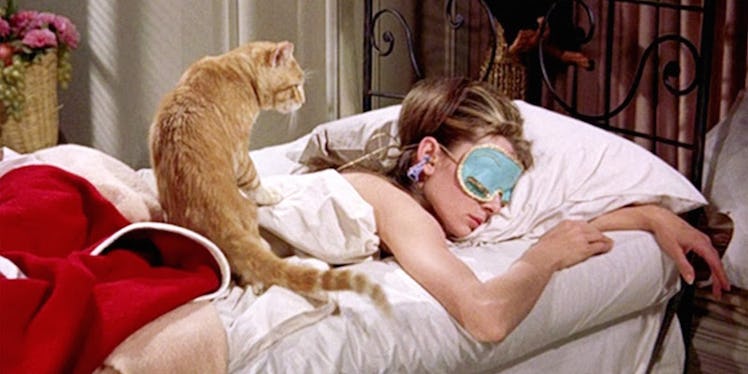
If You Didn't Get Sleep Last Night, Just Pretending You Did Will Wake You Up
This just in: A good night's sleep is kind of a lie.
Surely, you've had one of those awful nights when you can't seem to make your brain slow down. Alternatively, you decided to watch “The Wire” and can't seem to make your index finger tap the power button on your laptop. We've all been down that slippery hellhole of a sleepless road.
Whatever the case, in adult world you're still expected to wake up in the morning, to feed your pet, go to work, hit the gym and buy groceries.
No sleep isn't an excuse unless you're a toddler in preschool. (Speaking of, let's bring back midday naps. I really enjoyed those.)
Research from 2014 reveals scientists had no trouble convincing adults they'd gotten better sleep than they really had — it was all in their heads.
In two separate sleep studies, the research team asked 164 participants to self-report on the previous night's quality of sleep. Researchers then gave them one of two responses, chosen randomly: Your sleep was “above average” in quality, or it was a flop — “below average.”
Then, participants shuffled off to take two different tests measuring their cognitive ability. Surprise, surprise: Researchers found their phony sleep qualities "significantly predicted” whether or not a study participant performed well.
In other words, you have the mental power to convince yourself you slept better than you did.
It's a lot like leaving the house without any makeup, in that the first person you meet will inevitably say you look tired. From then on, you're basically a droopy-eyed old hag for the rest of the day.
Picture the evil stepmother from “Snow White” in disguise here. It doesn't matter how you felt beforehand, it only matters how another person told you to feel.
Notably, the National Sleep Foundation recommends adults ages 18 to 64 get between seven and nine hours of sleep per night (any fewer, and you might as well have not have slept at all, according to some studies).
Being well-rested theoretically keeps your brain functioning well and boosts energy. It even means a more effective metabolism.
Skipping sleep definitely shouldn't be your first resort, but the placebo effect might work in your favor the day after a restless night. Follow Peter Pan's legendary advice and "think happy thoughts" to get by. You can snooze after work is over.
Citations: A Strange Cure for Lack of Sleep (Psy Blog)